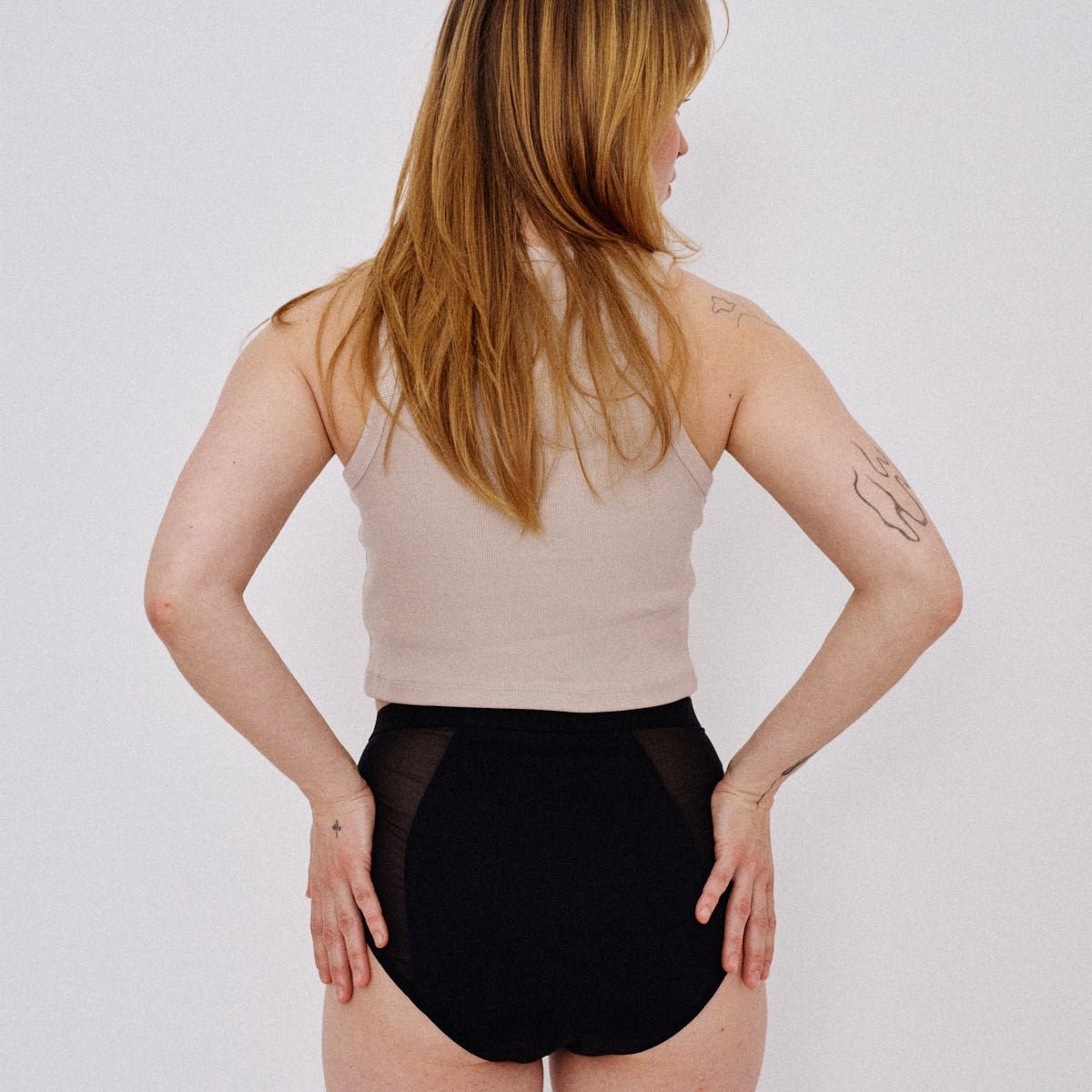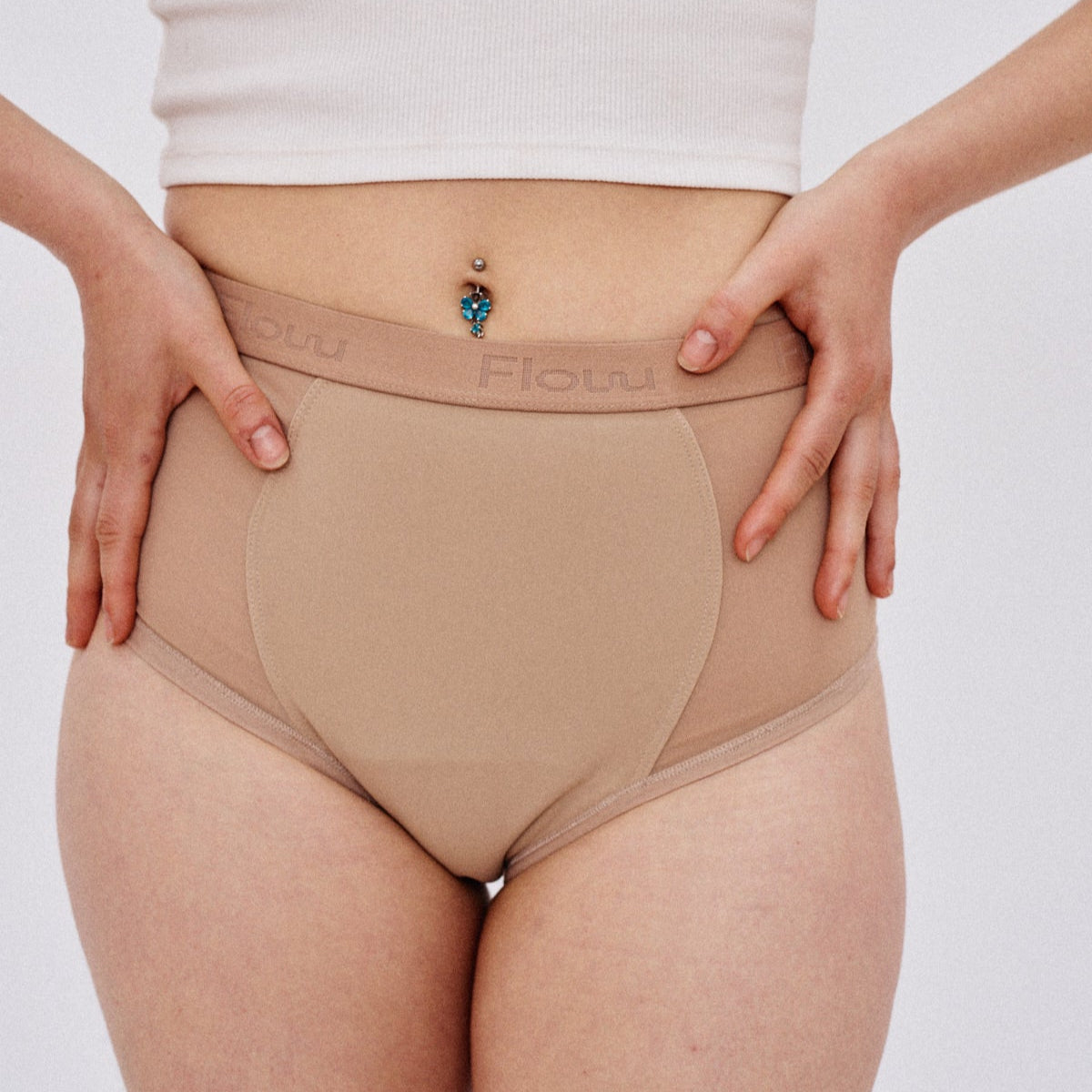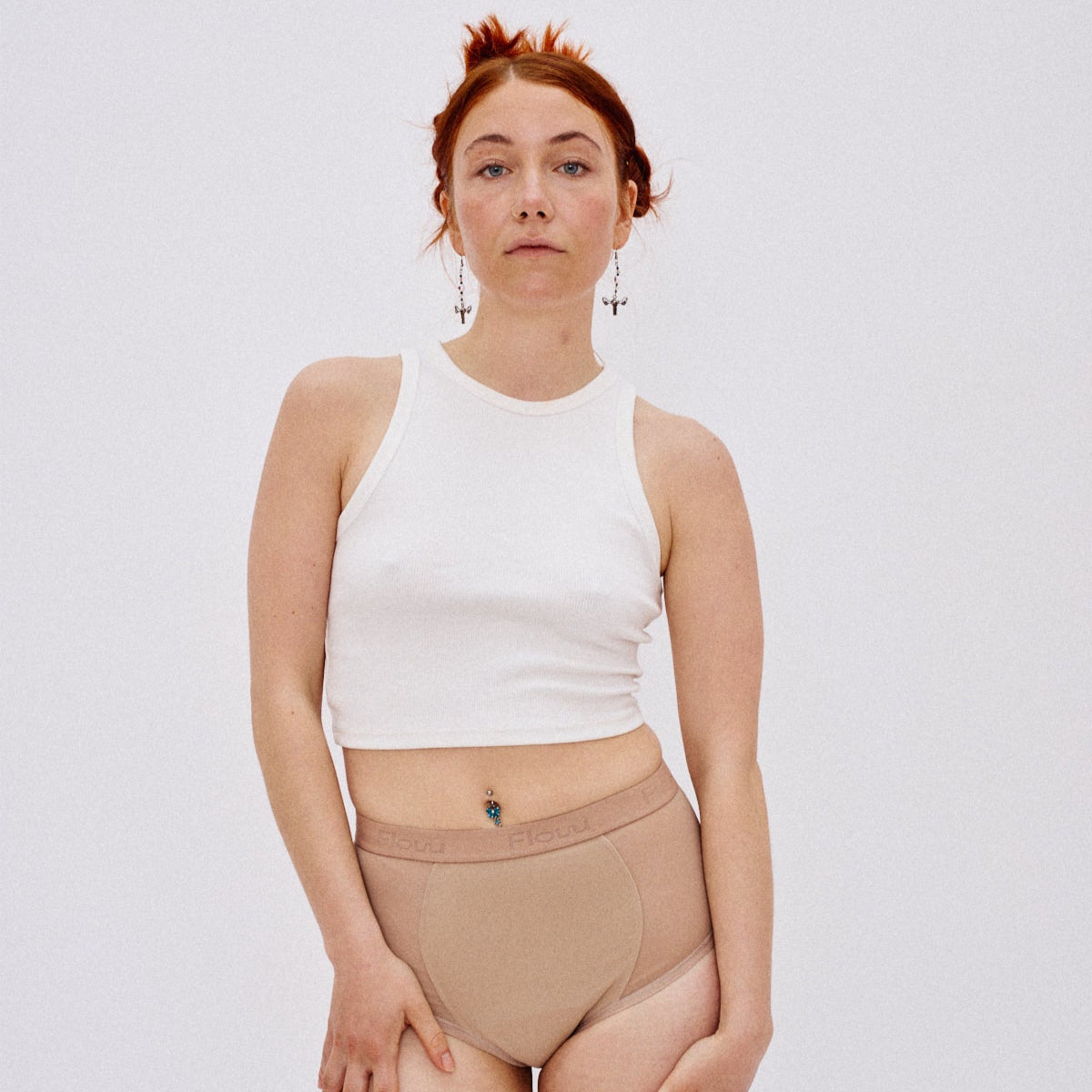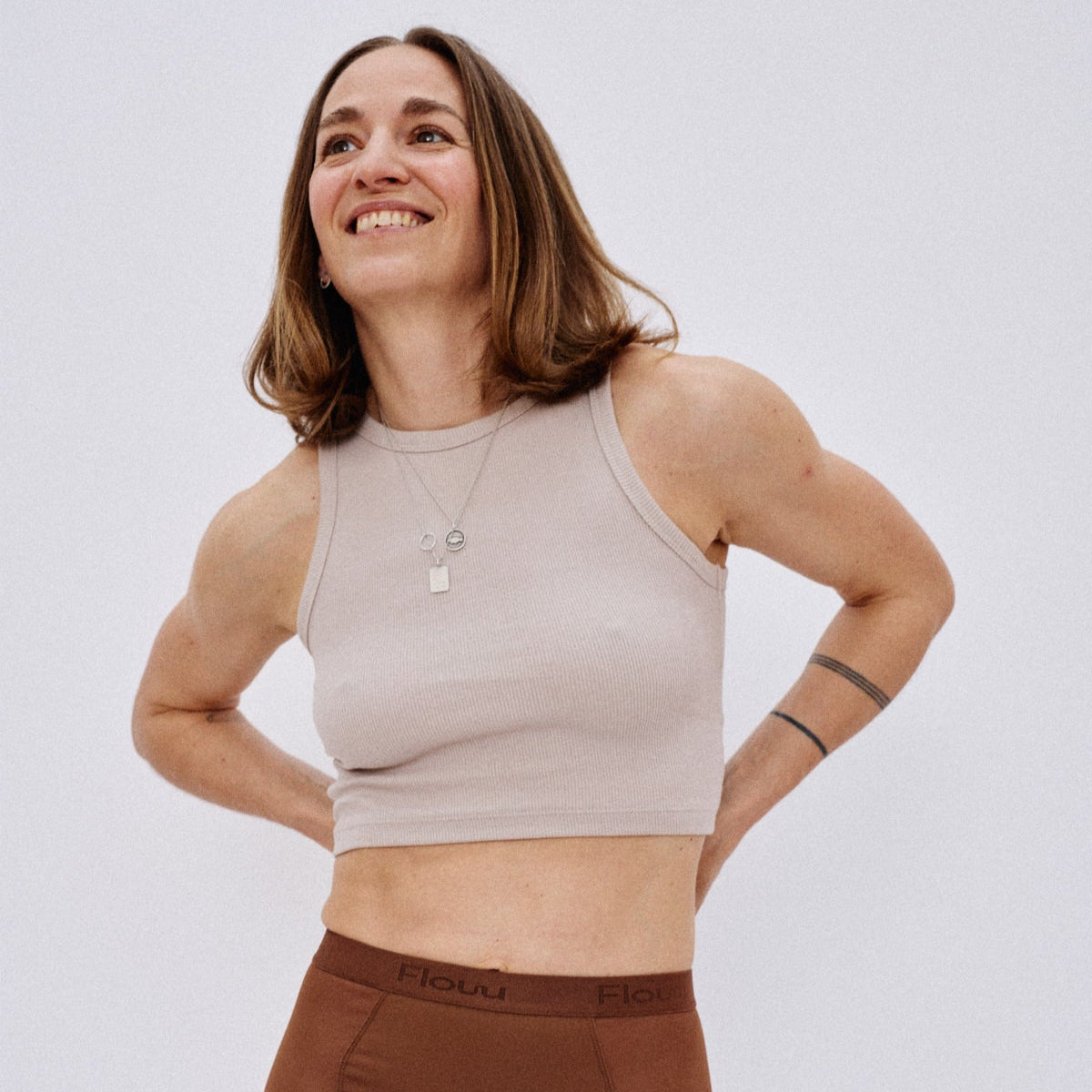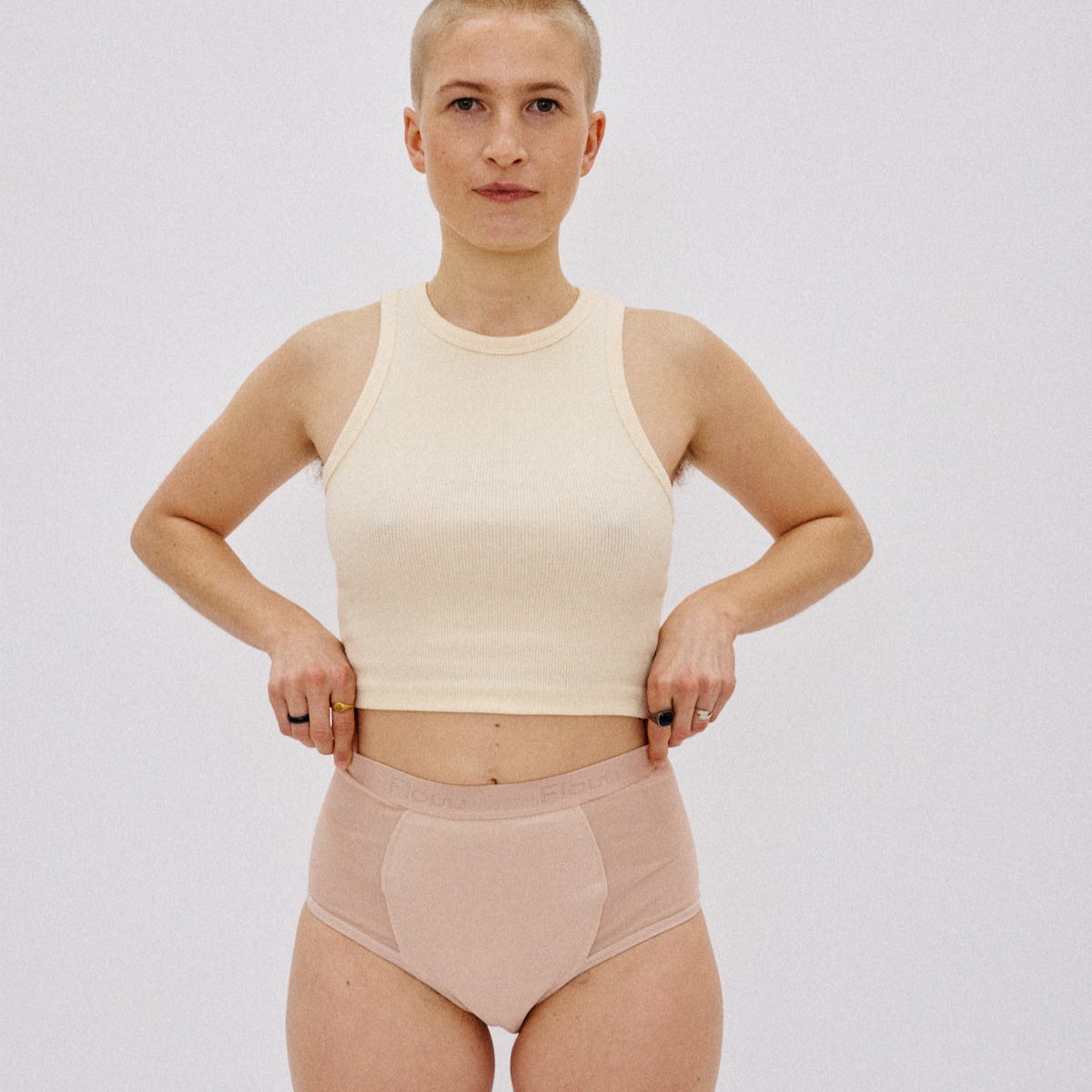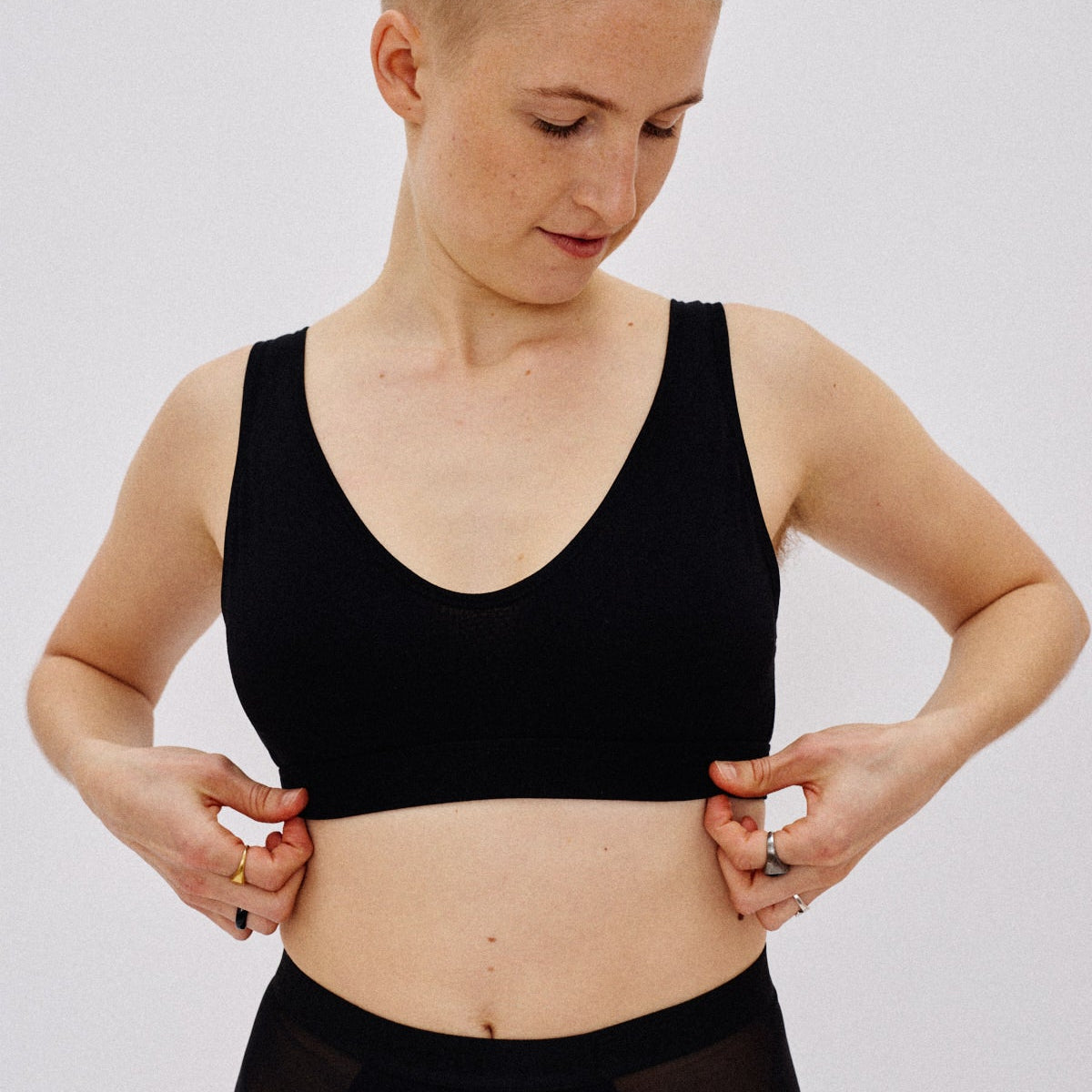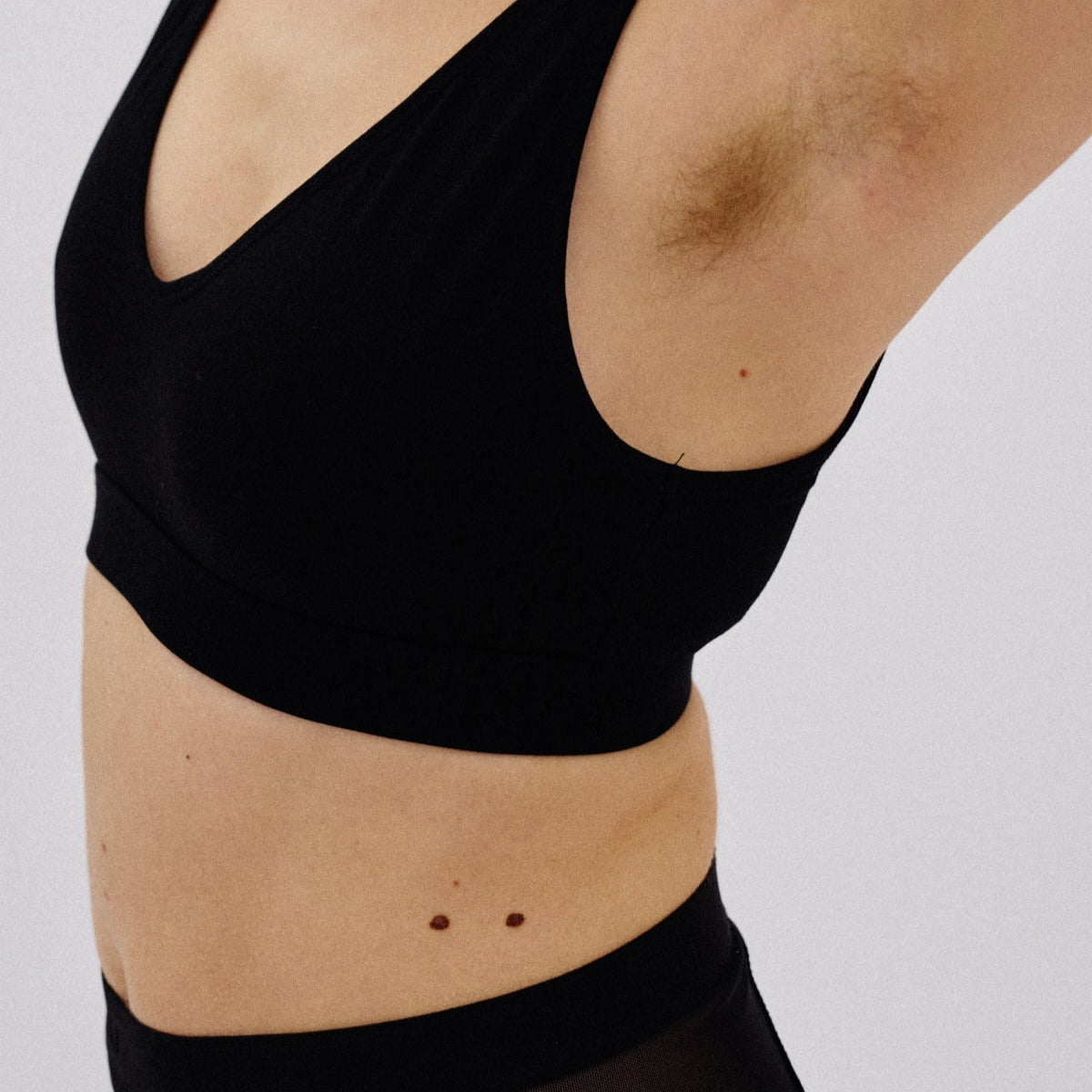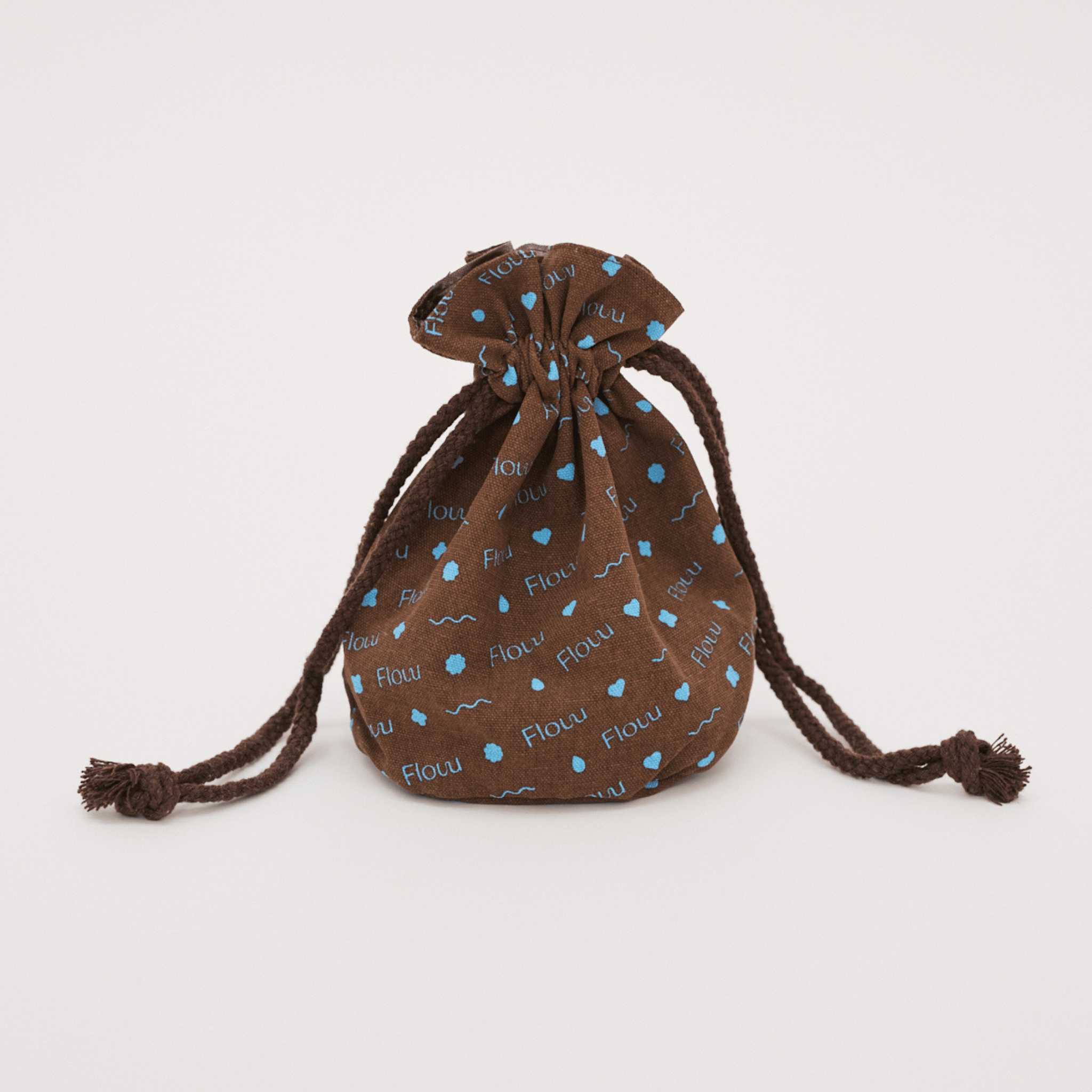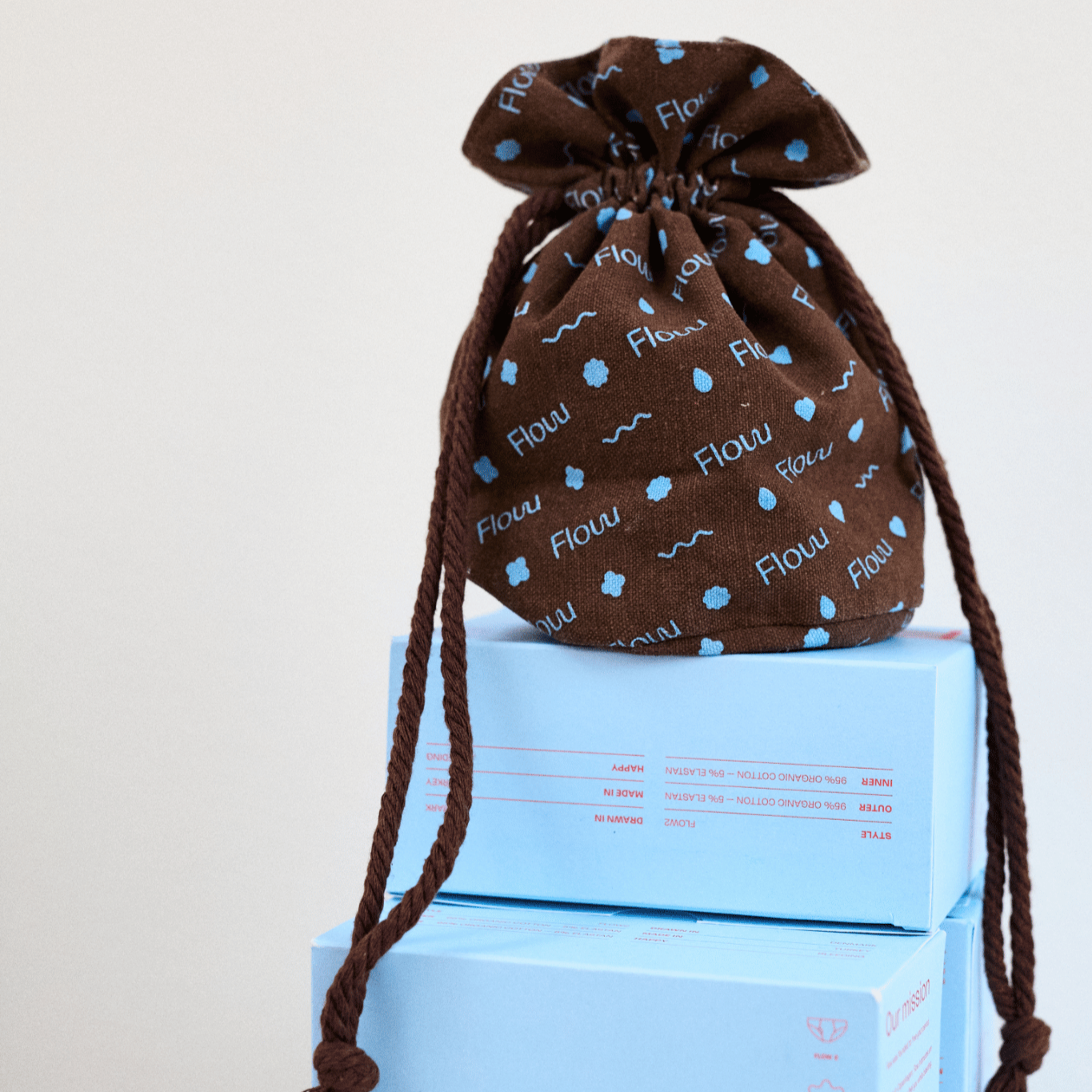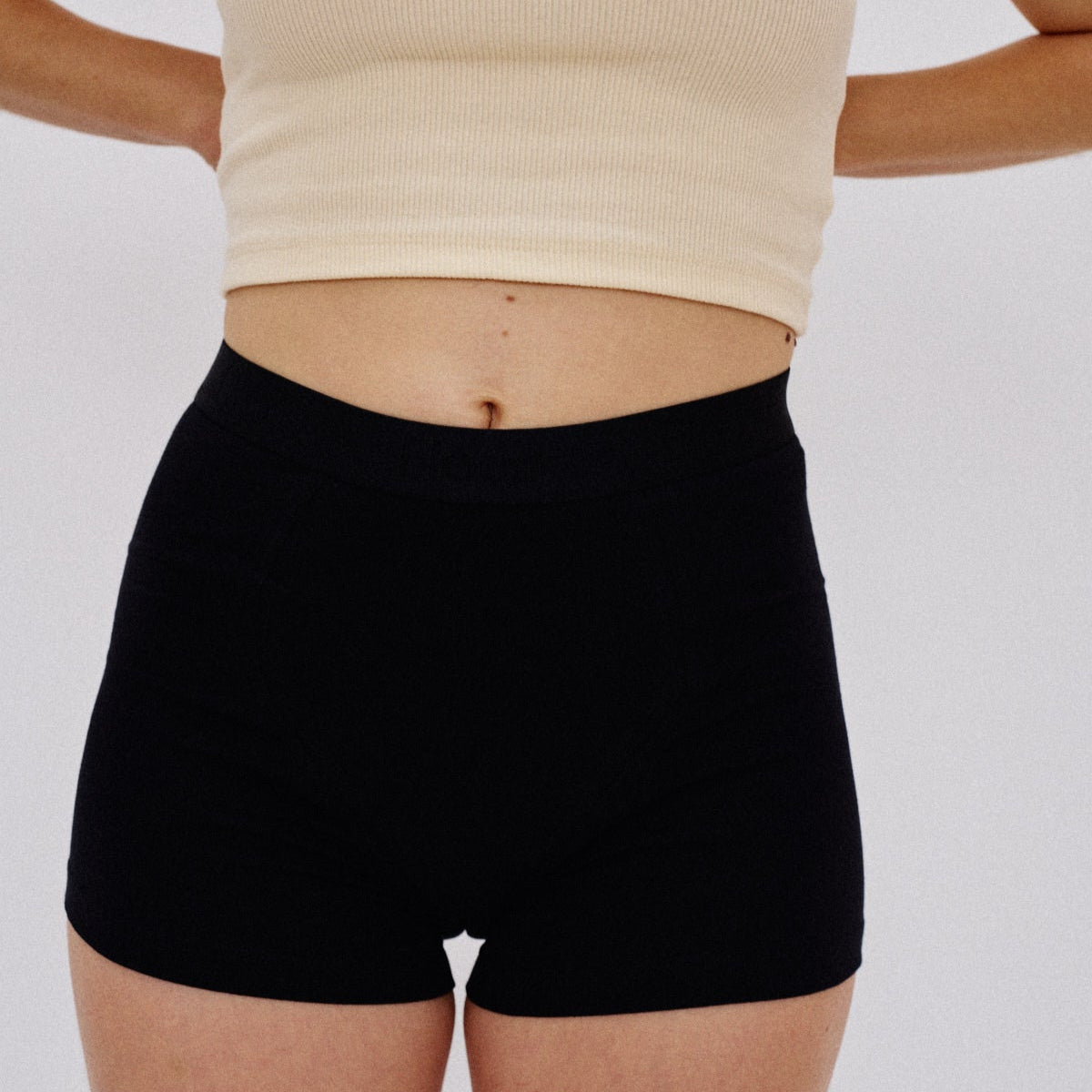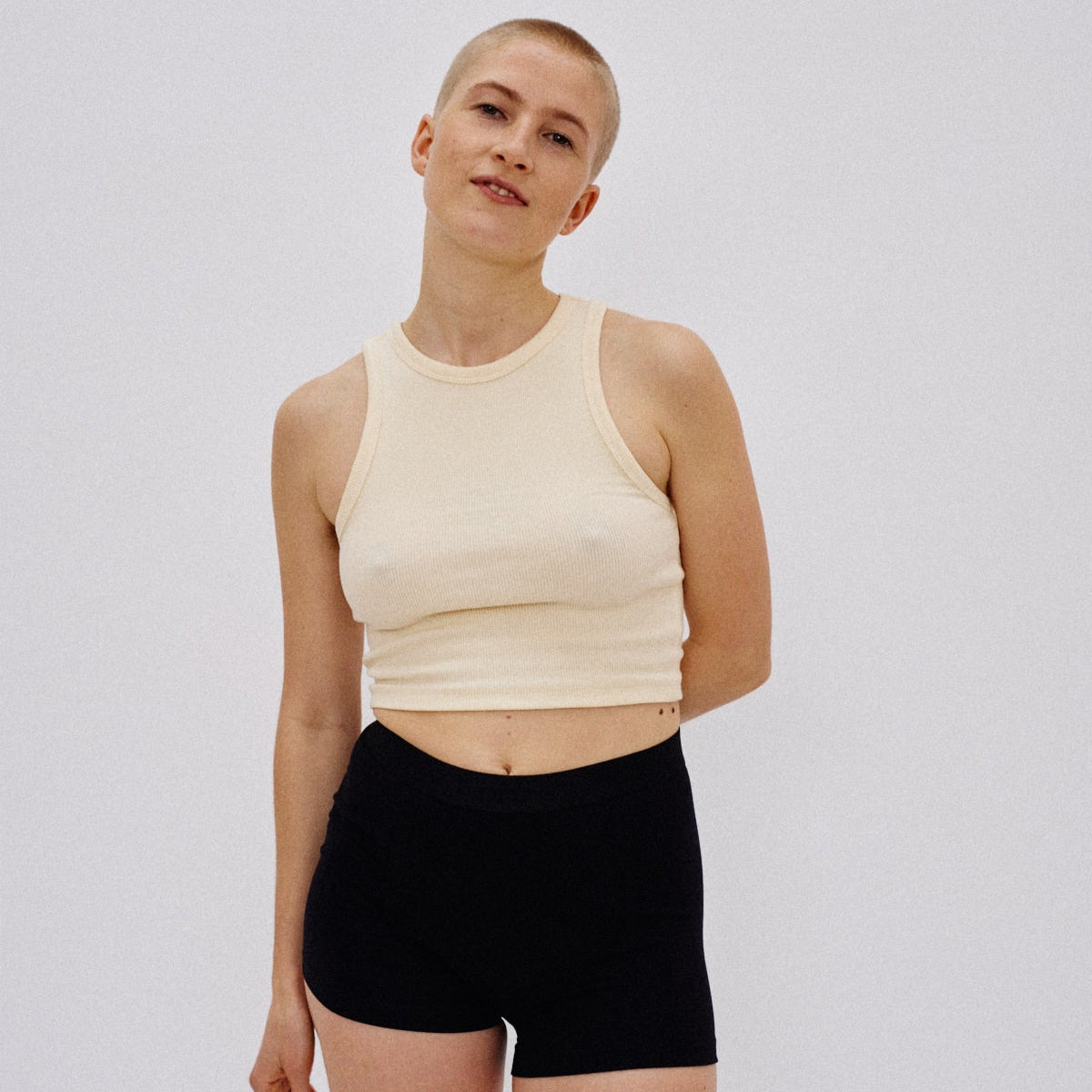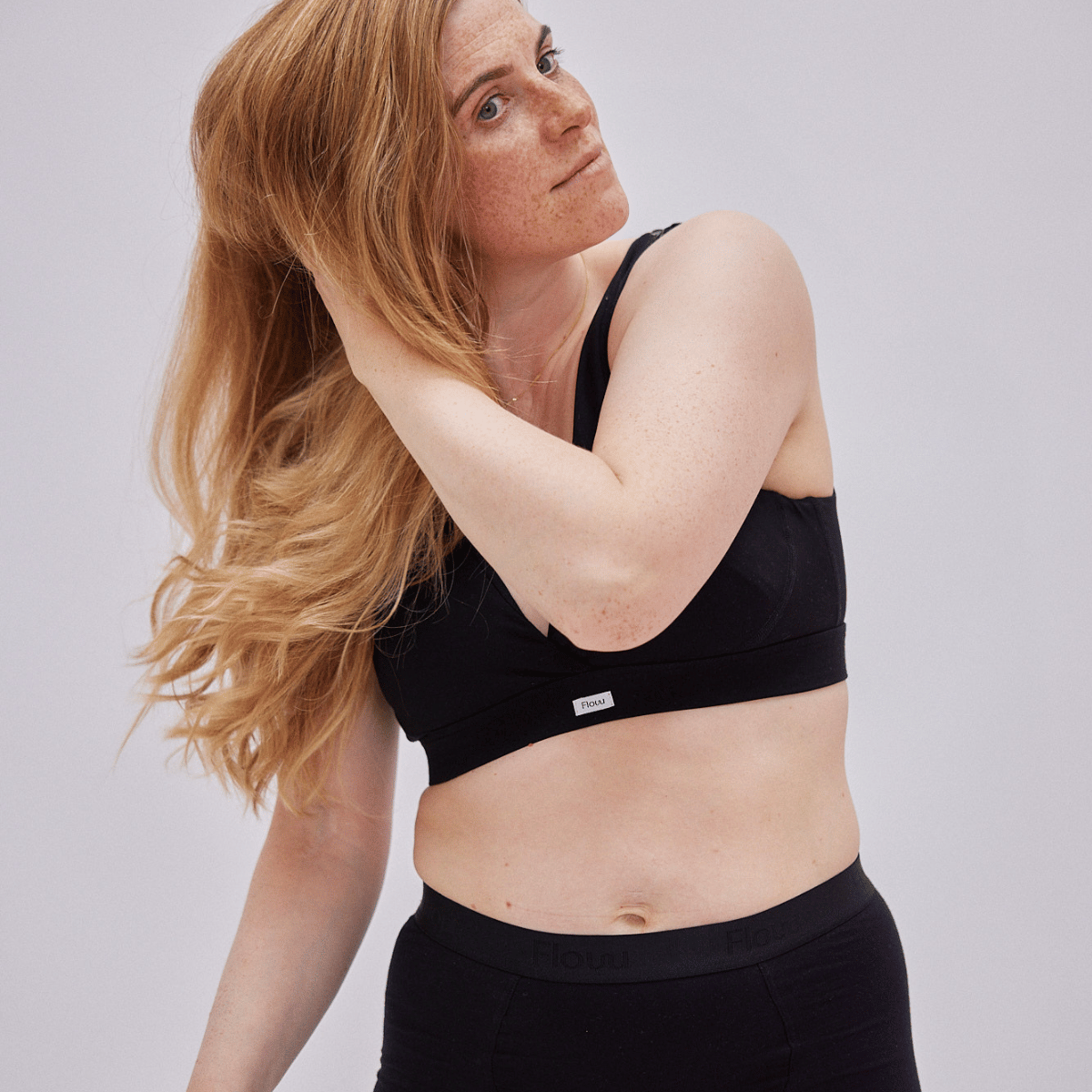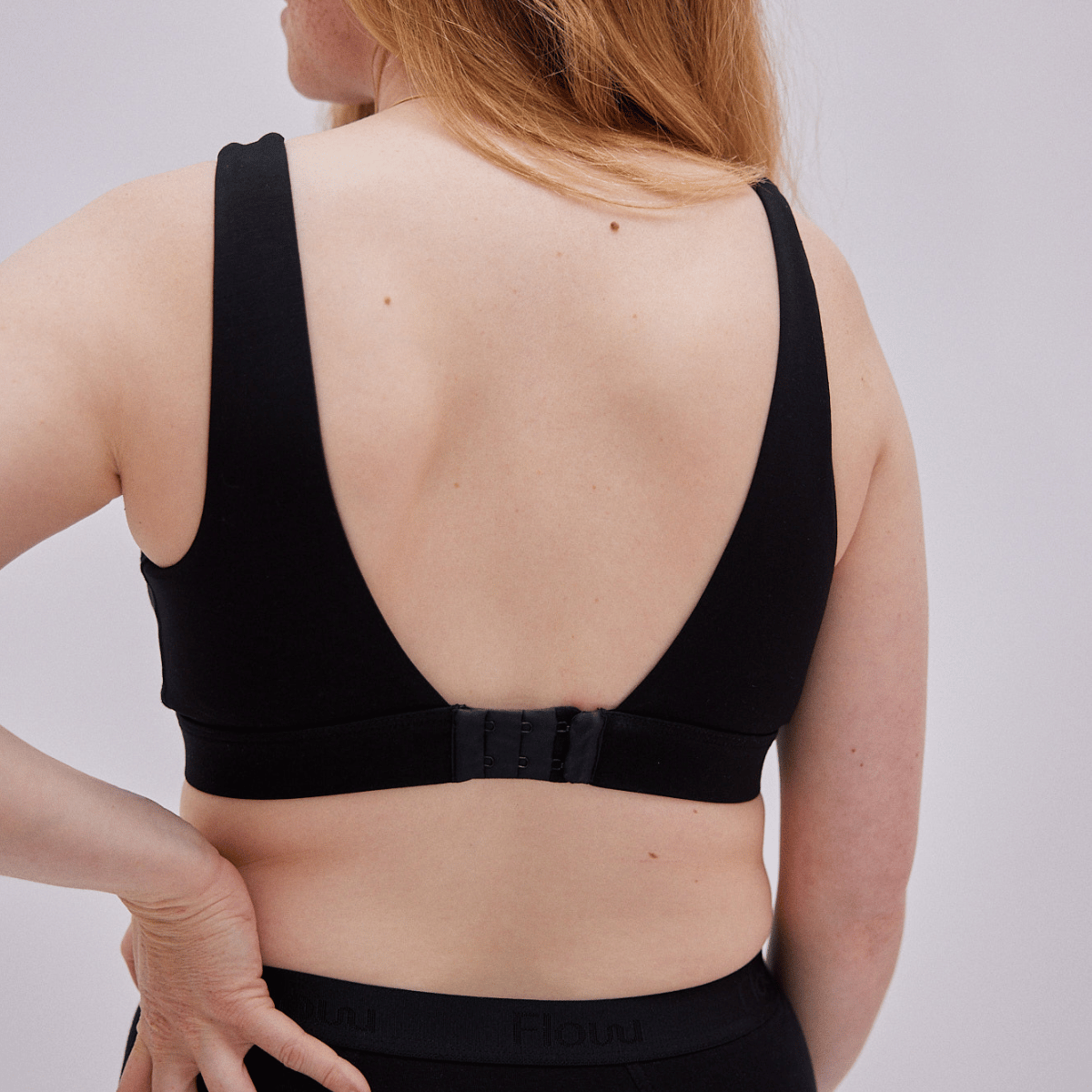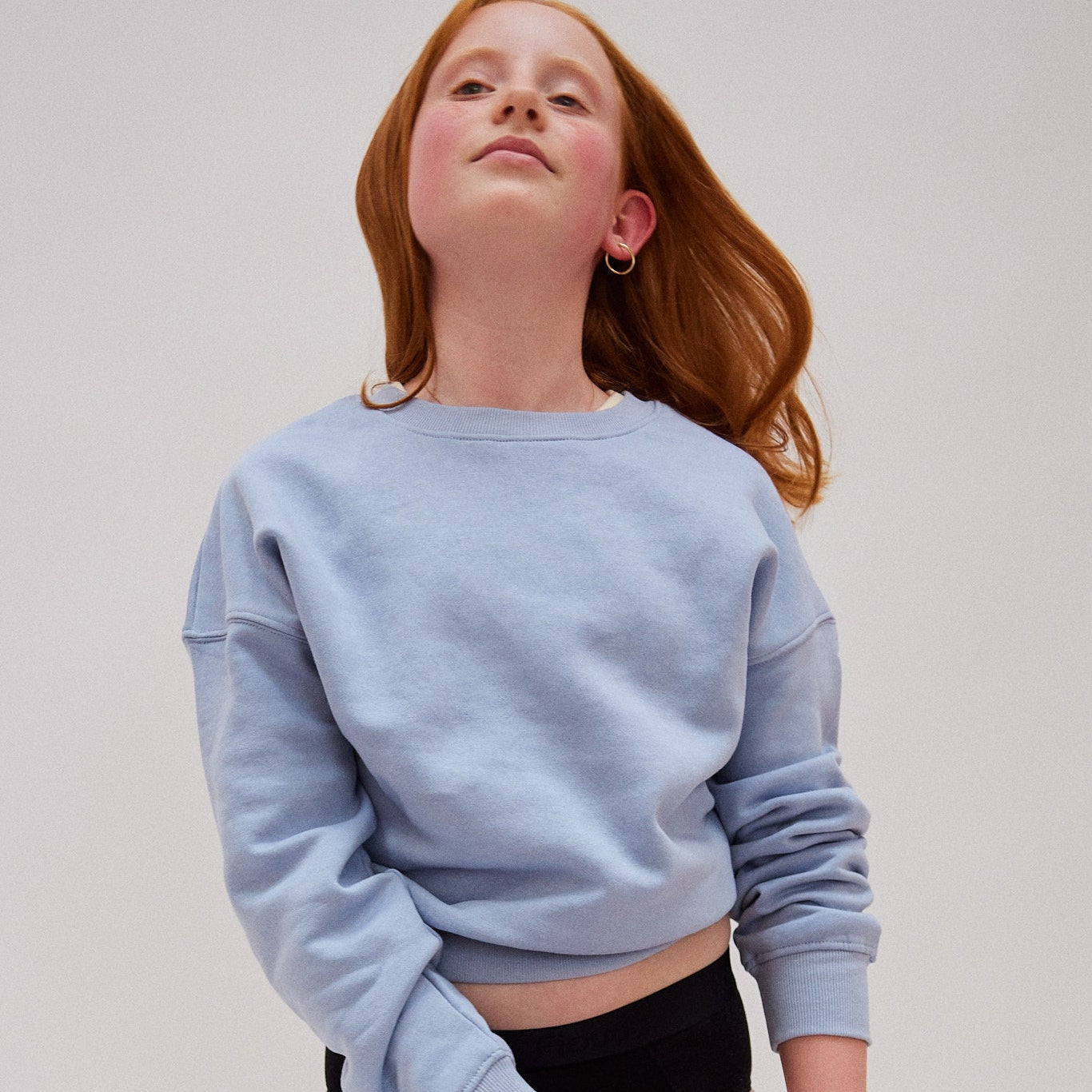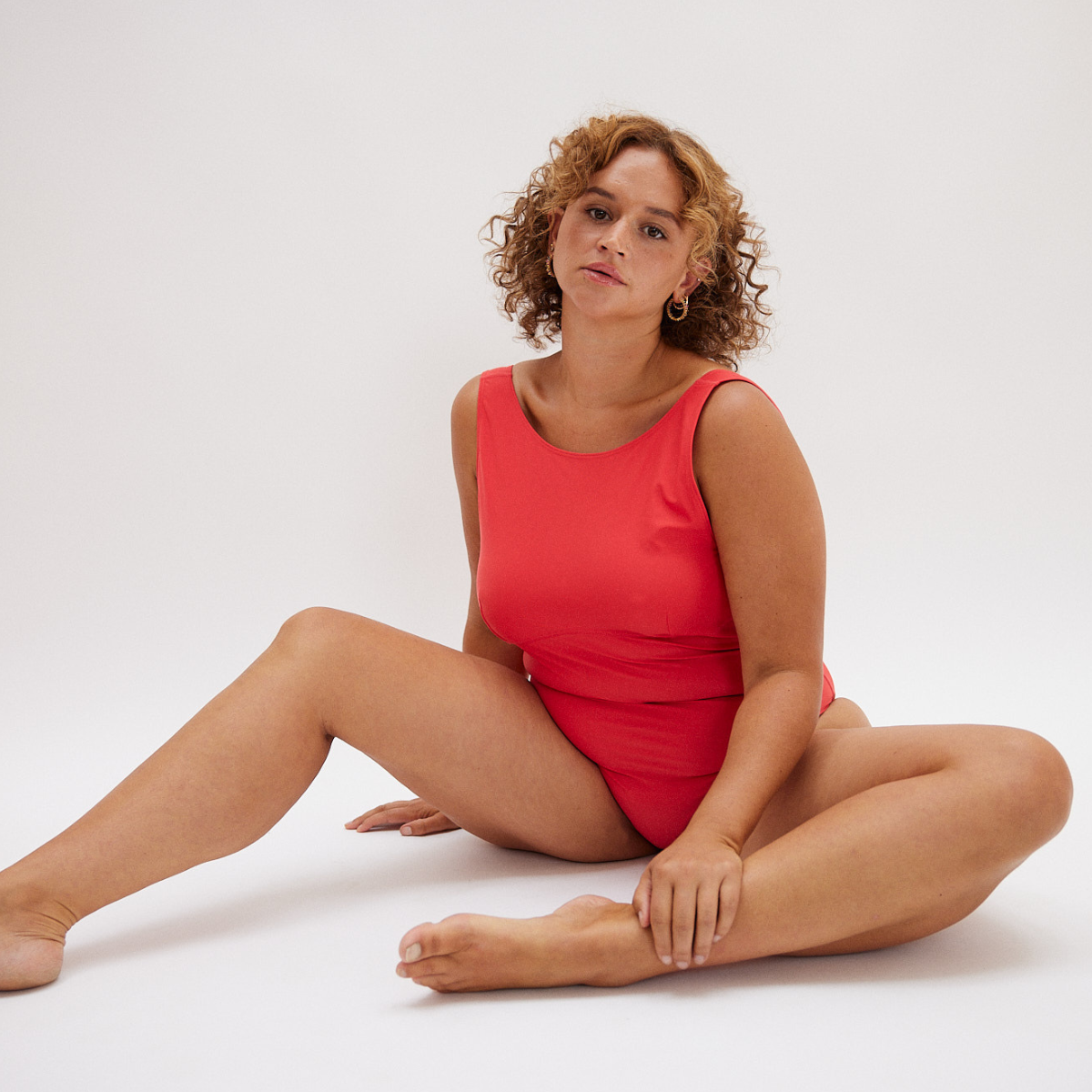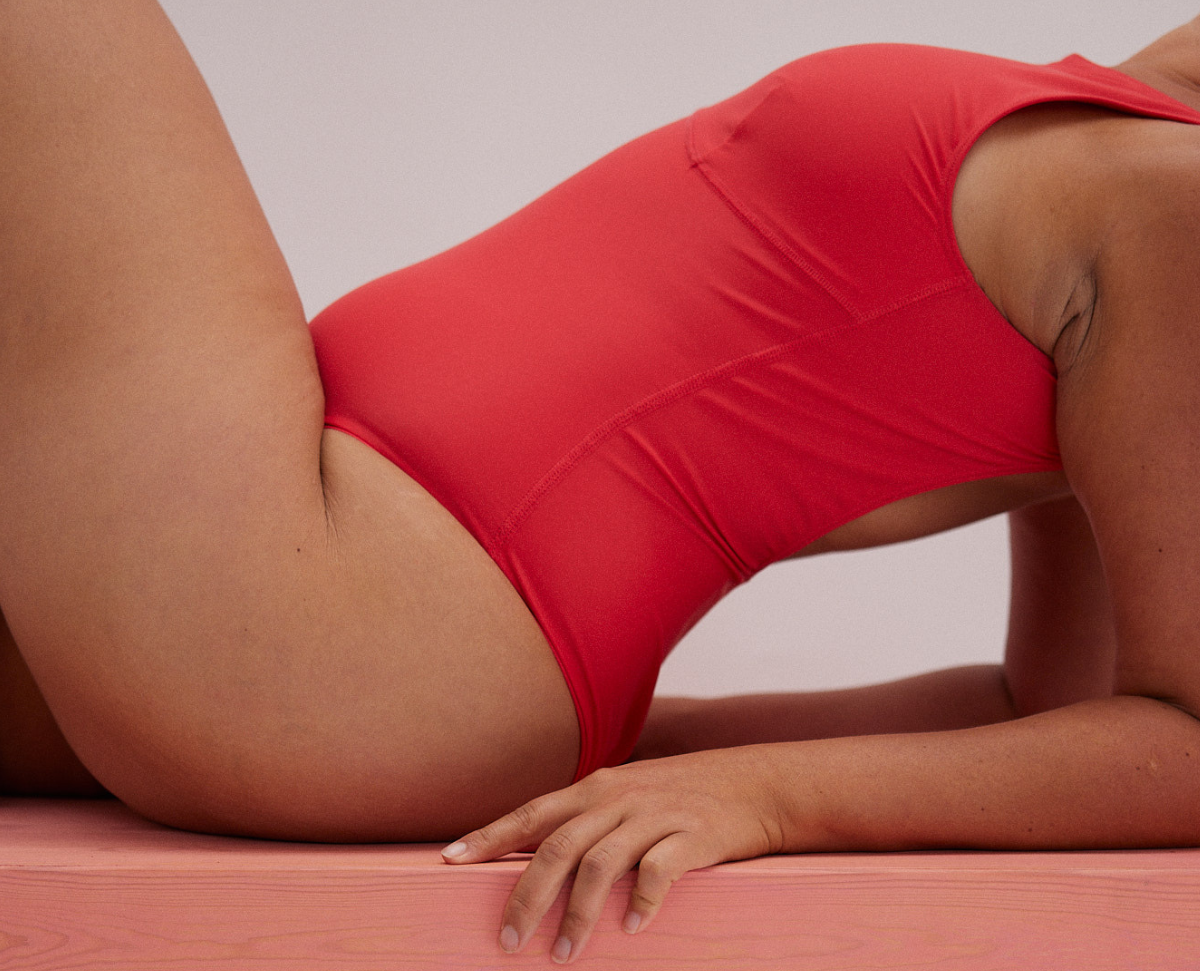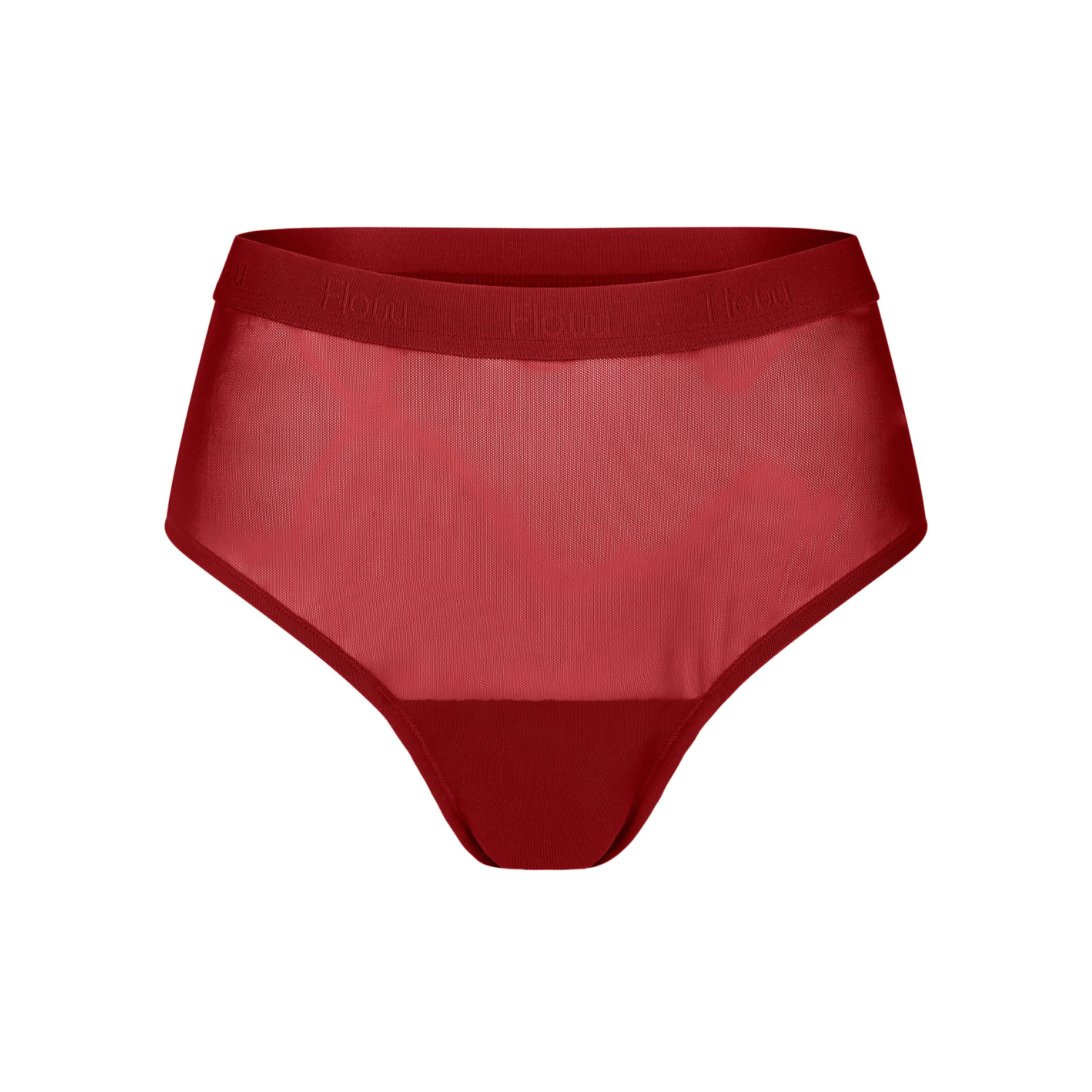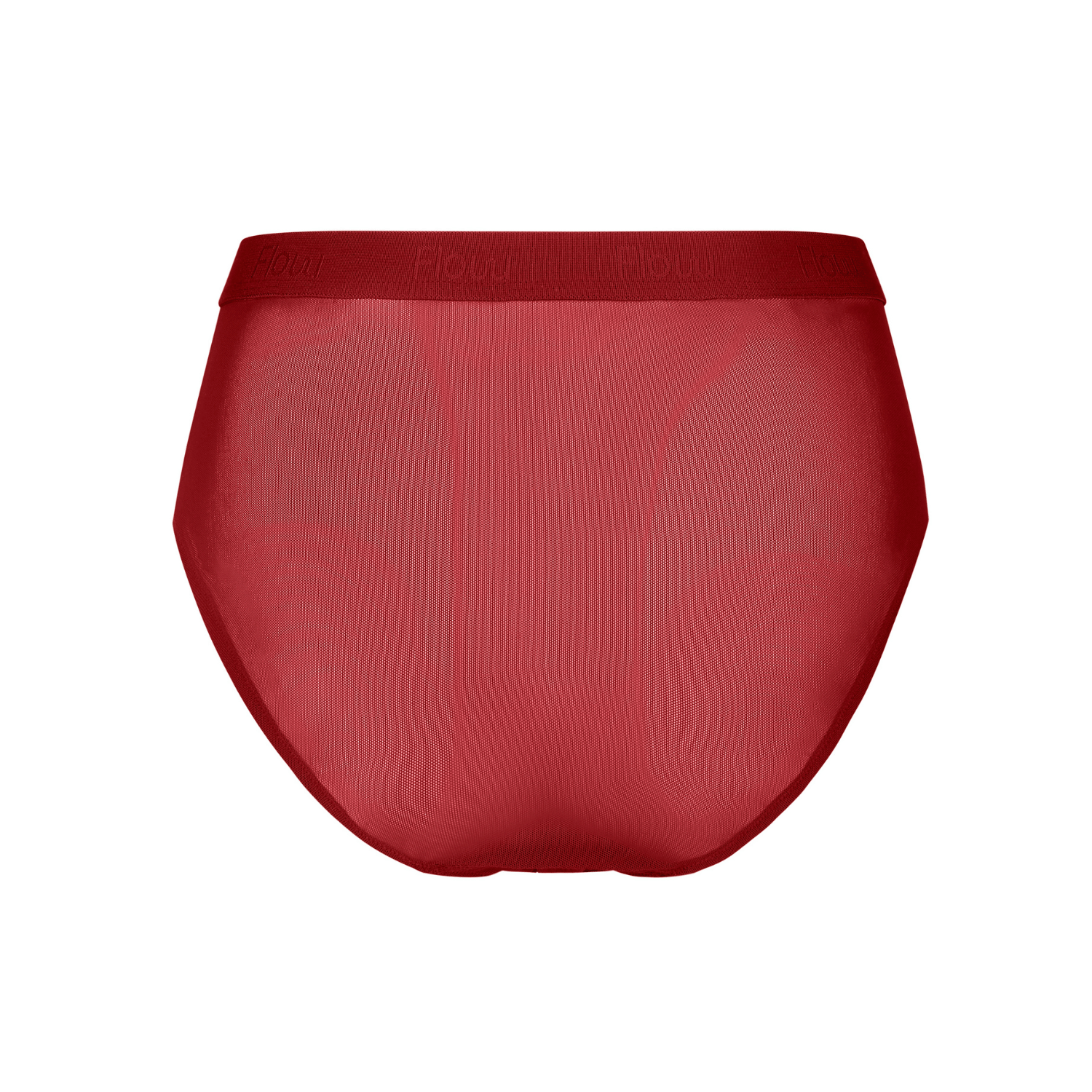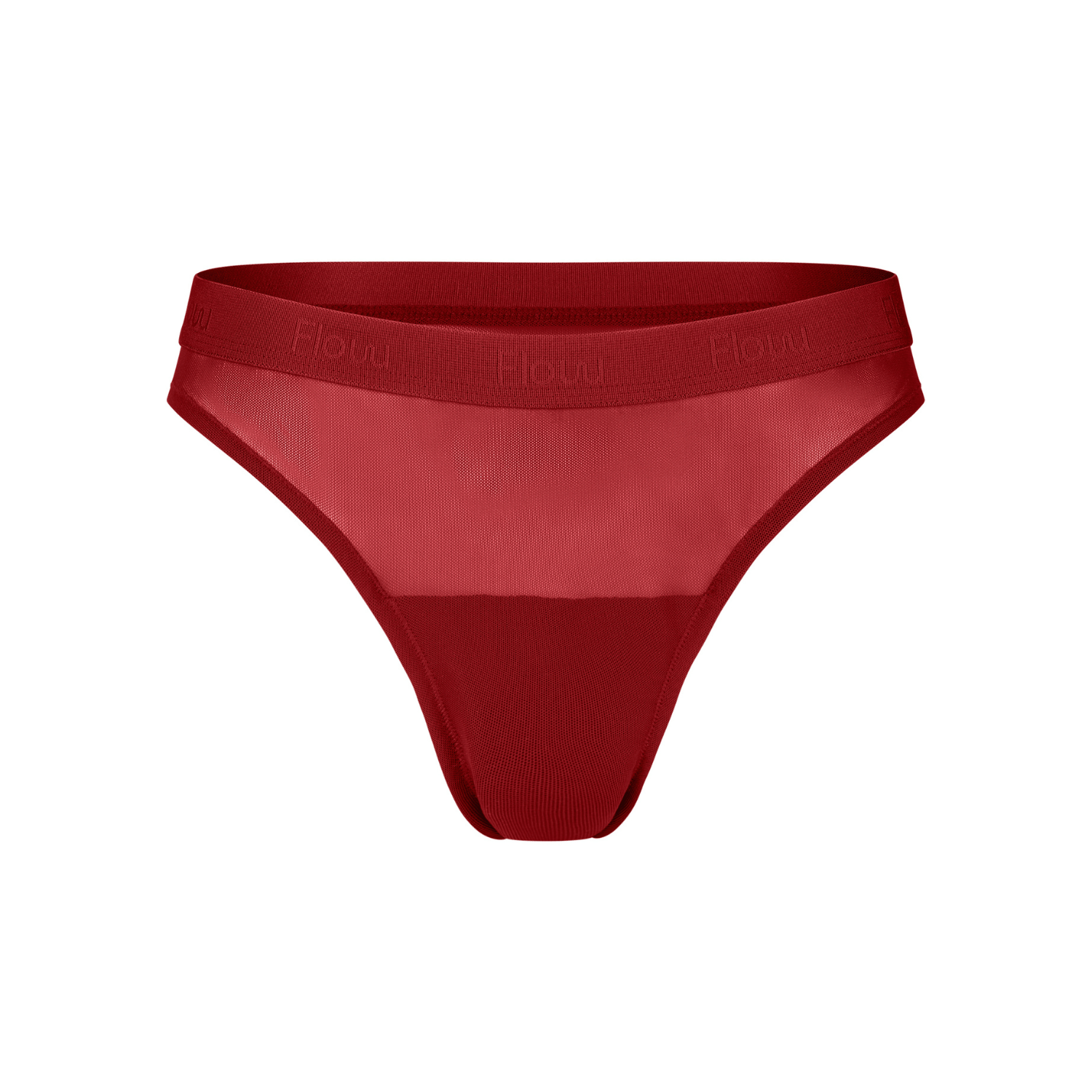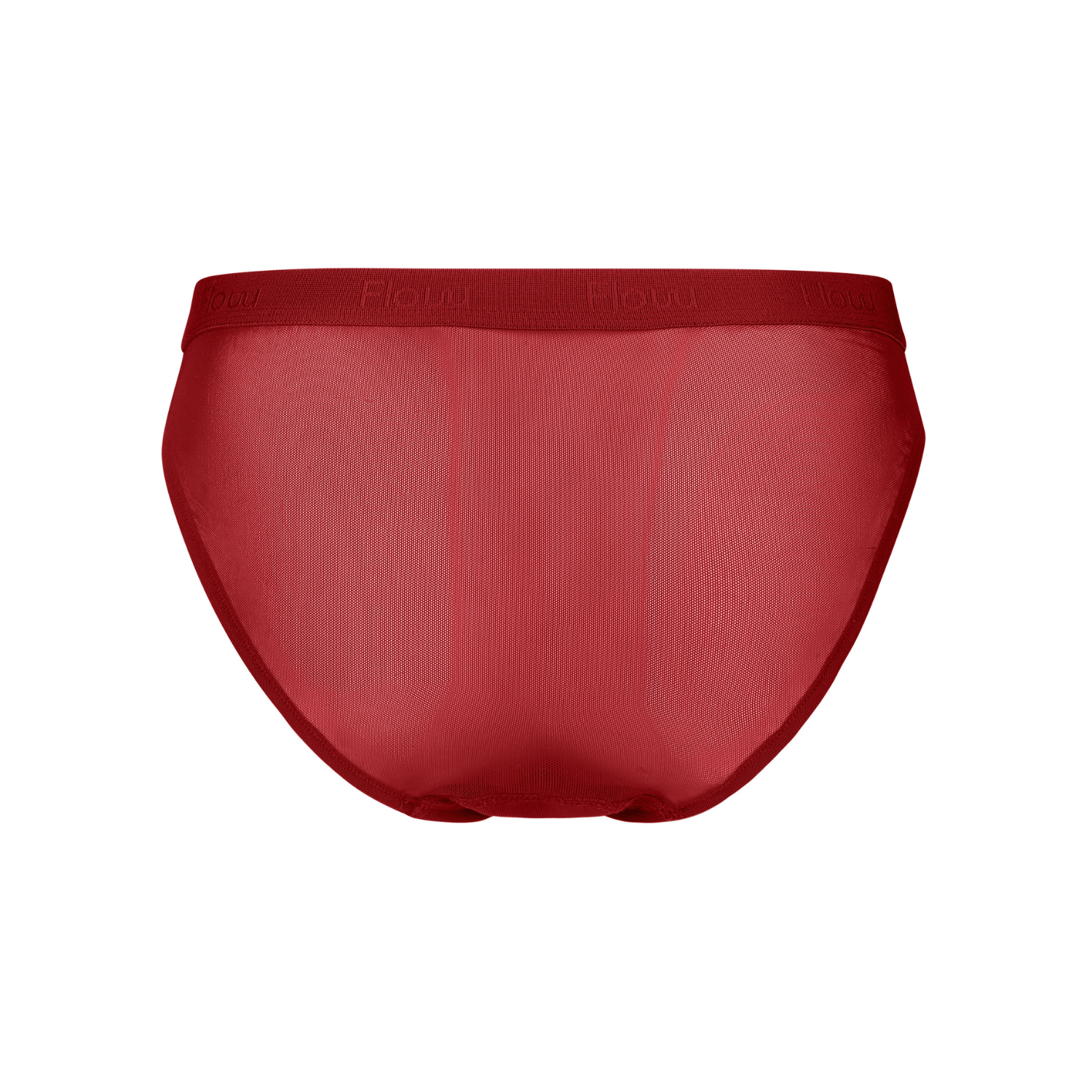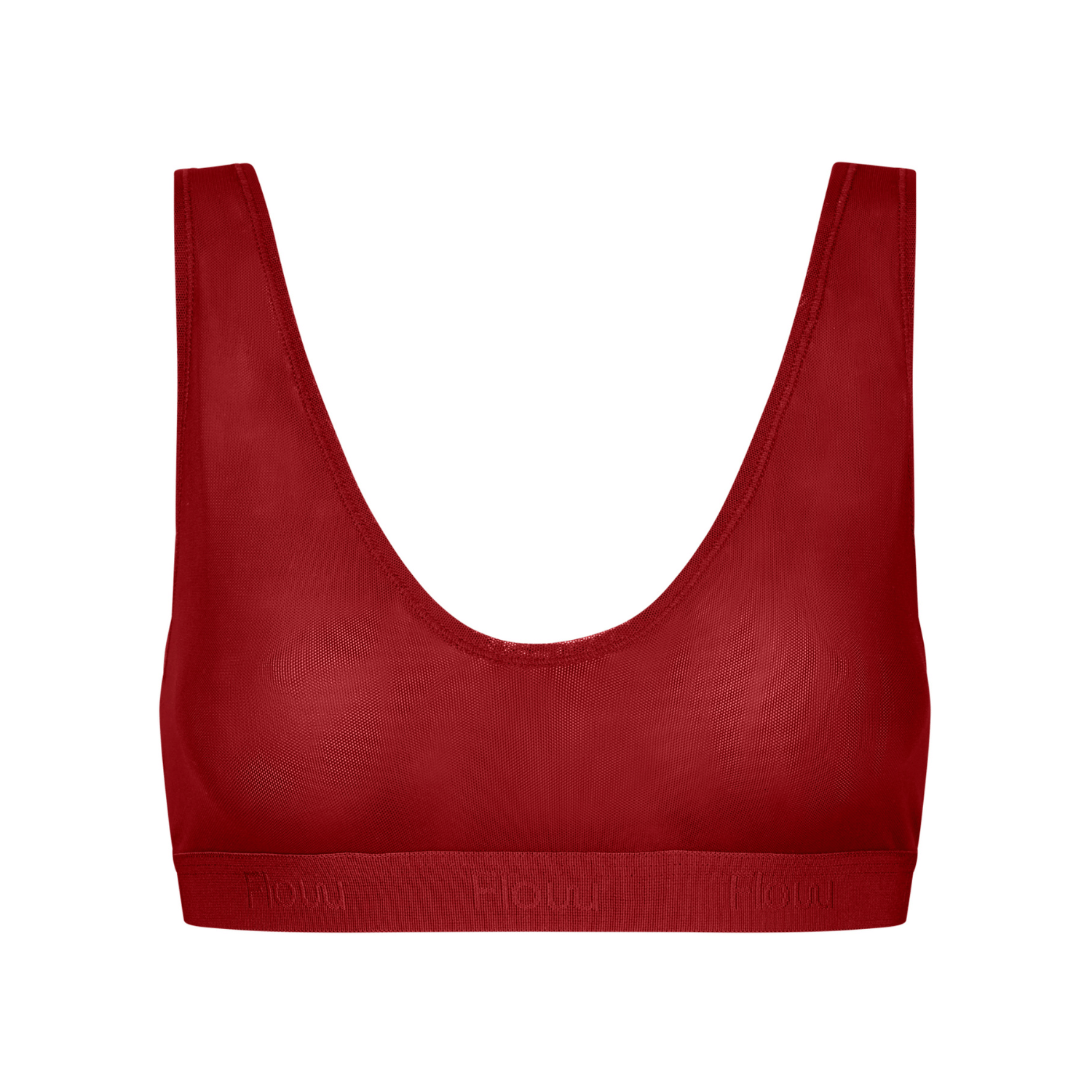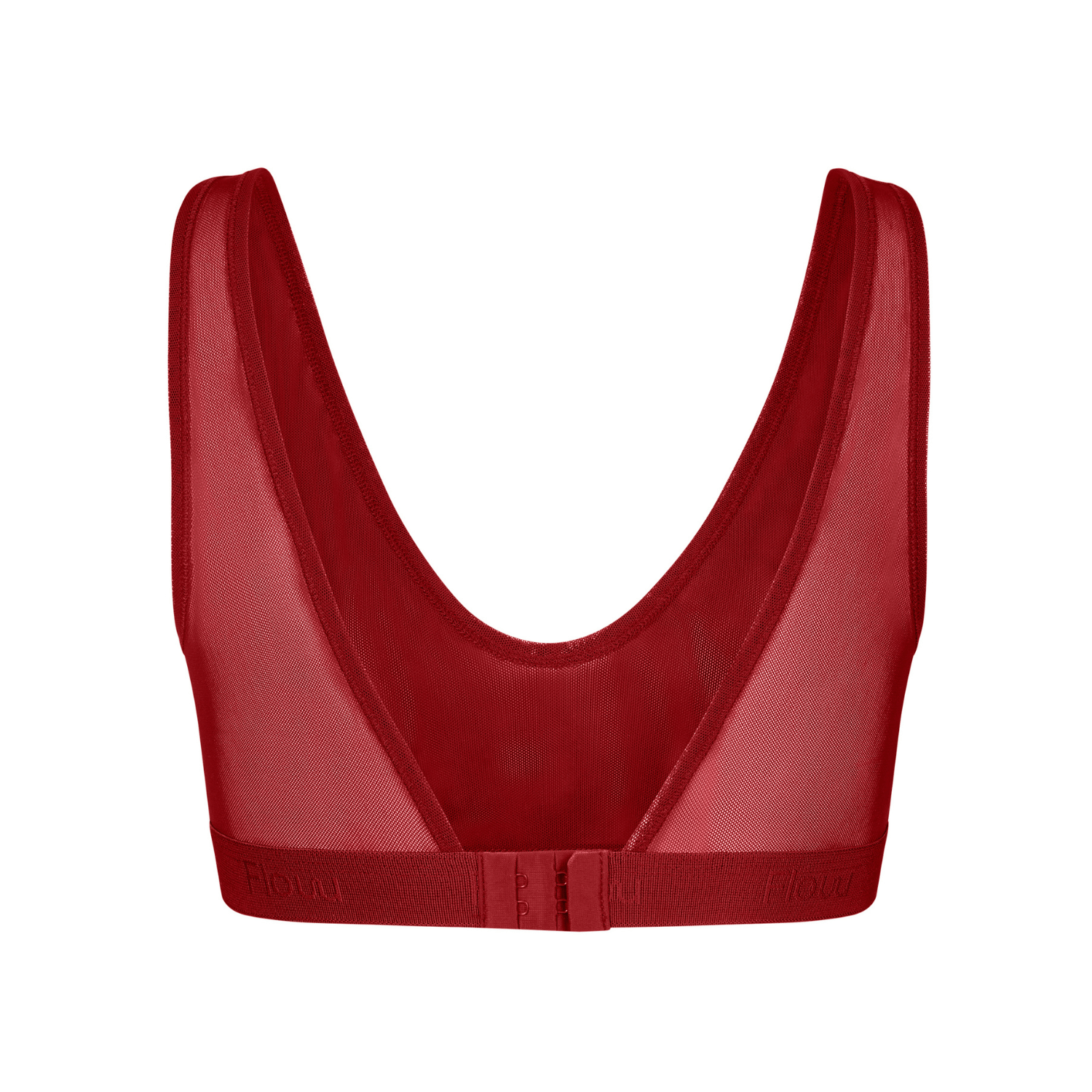The four phases of menstruation: What happens in the body?
Everyone, everyone, everyone should have this knowledge - knowledge of the four phases of a menstrual cycle. Women like men , menstruating or not. In fact, it should be a subject on the school curriculum. What actually happens in the monthly cycle in a feminized body, a woman's body? It's actually quite fascinating, and it's something that affects people every single day, both those who menstruate and those around menstruating people, whether they're partners, children, colleagues, friends, family members. A quite choreographed dance that goes on month after month in the body without us really thinking about it.
Imagine that every month the body prepares itself to create and carry a life. A series of biochemical reactions, hormones that rush up and down, muscles that work, to end in menstruation if an egg is not fertilized. A cycle consists of four phases. These are the ones we will go through here, so that you can learn more about the four phases of menstruation. Many also call the four phases the seasons, i.e. winter, spring, summer, autumn, because there are many similarities between the phases of the cycle and the seasons. Below we describe what happens physically in the body during the four phases, and in the section below, you can read about how the different phases typically affect mood. A typical cycle lasts 28 days, and we will take that as a starting point in this article. However, it is not uncommon for a cycle to vary from day 23-35.
Phase 1: Menstruation (days 1 to 5 but it varies)
also called 'the inner winter'
Now we are starting our cycle! The uterine lining, which has been thickening and thickening throughout the last cycle to support a pregnancy, has realized that there is no fertilized egg. There is a drop in the hormones progesterone and estrogen, and menstruation begins. The unfertilized egg and the uterine lining are expelled from the uterus as menstruation.
It can start as spotting or full-on bleeding. It varies from person to person. But a period typically has fresh, red blood – this is a sign of a good flow. The length of the period itself and how long you bleed also varies from person to person. Some bleed for three days, while others bleed for seven days. However, the average is to bleed for about 4-5 days, with days four and five being less in terms of the amount of blood. Here you often experience menstrual symptoms, perhaps an upset stomach , increased stool volume, mood changes or pain in the lower abdomen.
Phase 2: Follicular phase (around day 1 to 14, but it varies)
– called 'the inner spring'
After your period, the follicular phase begins gradually. It is the period from the first day of your period until you ovulate. Your hormones are running high. And it can be felt as a period of energy, joy, a desire to make a thousand plans and be social. It is the pituitary gland that is at work, releasing the hormones needed to make a group of eggs (follicles) grow and mature. It is a race for more eggs – but only the 'best' wins. Your body is ready to send an egg from the ovary – in the hope that it will be fertilized in the fallopian tube by a sperm cell.
Phase 3: Ovulation (day 14 but it varies)
– called 'the inner summer'
The dominant follicle has taken the lead, bursting and releasing a mature egg into the fallopian tube. Tadaaaa: Ovulation has occurred. Your body is now ready for a potential encounter with a sperm cell, and the fertile window, as it's called, is typically open for the next 24-48 hours.
Maybe your sex drive is at its peak, you feel on top of the world – for a little while longer.
Phase 4: Luteal phase (days 15 to 28, but varies)
– called 'the inner autumn'
Ovulation is over, but that's probably a good thing, because the high your body has been on for a few days can be too much of a good thing.
The ruptured follicle, or what is left where the egg has detached, transforms into the corpus luteum, and it begins to produce the female sex hormones estrogen and progesterone, which will prepare the uterus to hold a possible fertilized egg. You will begin to feel the hormonal changes. You may feel bloated, notice changes in appetite, or notice your mood swings more than usual. When your body realizes that it has not become pregnant, hormone levels drop drastically towards your period.
Phases of the menstrual cycle and mood
As described above, the cycle has an impact on what happens inside the body of the person who is menstruating, but all the hormonal changes have an impact on much more than what happens inside the body. The phases of the menstrual cycle affect the mood and energy levels of people who are menstruating, and some people experience being strongly influenced by their cycle , which can feel like the seasons, winter, spring, summer and autumn.
Below we describe a scenario that follows the typical, strong mood swings that the cycle can cause. However, it is possible that you are not affected by these and that you simply react physically when you have your period. This is also completely normal. However, it can be exciting to delve into this knowledge and give yourself an increased cycle awareness that may make you smarter about why you feel the way you do.
Winter - you might want to go on a hiatus
You're on your period and you want to take a nap. You're tired, need extra sleep, maybe you feel a fog over your brain that makes it hard to think as quickly as you usually do. Take care of yourself during this time and try to make room for yourself to take a nap and turn your attention to yourself.
Spring - the winter fog lifts, the sun peeks out
Your period is over. Your hormone levels are starting to rise, and the winter fog is starting to lift. The sun is peeking out, and so is your energy, your mood, and your energy levels.
Summer - you are 'on top of the world'
You're ovulating, and it might feel like you could take off if you wanted to. The world is your oyster, and if we could truly live by our cycles, this would be the time when you'd make sure to plan for that oral exam, that big presentation to your colleagues , or that big party. This is when you feel like a superhero.
Autumn - a massive plunge in hormones
It has been a spring and summer filled with sunshine and energy. We can't avoid the arrival of autumn, and with a massive dip in estrogen and progesterone, the symptoms are knocking. It is also known as PMS - premenstrual syndrome. These can be physical and psychological. From headaches to sore breasts, fatigue, lower back pain, bloating to those of a psychological nature - easy to cry, mood swings, anxiety, increased tendency to irritation. During this period, it can be nice for people close to you to show understanding and love, so that the mood swings do not grow because you are misunderstood.
And so the cycle rolls on
... And then there it was again. The inner winter. Menstruation. The body shedding an unfertilized egg, uterine lining tissue, and a little blood. And then it does it all over again. Month after month. It's actually pretty incredible.
You can have varying cycle lengths, the “normal” range is quite wide. And you can also have your period without ovulating. Your bleeding amount can vary and so can your symptoms. If you are in doubt about how your body is feeling, talk to your doctor.
Learn more about menstruation and your body
At Flow, we find menstruation and its many facets fascinating. That's why we delve into all kinds of themes within menstruation, and we hope that even more people will read along so that we can gain a greater understanding of what it means to menstruate and how it affects us. That's why we hope you enjoy reading along. Maybe you know someone who doesn't menstruate themselves who would benefit from reading our articles so they can learn more about the subject. Please forward this article to them. And you can find many more articles about cycles, menstruation, mood and hormones here .

